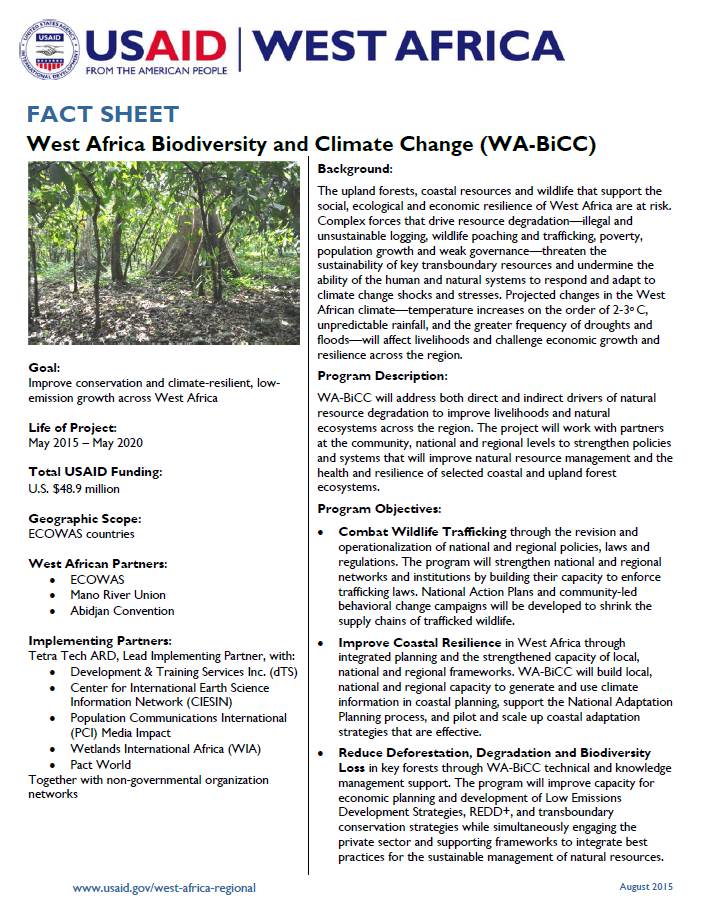Goal:
Improve conservation and climate-resilient, low-emission growth across West Africa
Life of Project:
May 2015 – May 2020
Total USAID Funding:
U.S. $48.9 million
Geographic Scope:
ECOWAS countries
West African Partners:
• ECOWAS
• Mano River Union
• Abidjan Convention
Implementing Partners:
Tetra Tech ARD, Lead Implementing Partner, with:
• Development & Training Services Inc. (dTS)
• Center for International Earth Science Information Network (CIESIN)
• Population Communications International (PCI) Media Impact
• Wetlands International Africa (WIA)
• Pact World
Together with non-governmental organization networks
Background:
The upland forests, coastal resources and wildlife that support the social, ecological and economic resilience of West Africa are at risk. Complex forces that drive resource degradation—illegal and unsustainable logging, wildlife poaching and trafficking, poverty, population growth and weak governance—threaten the sustainability of key transboundary resources and undermine the ability of the human and natural systems to respond and adapt to climate change shocks and stresses. Projected changes in the West African climate—temperature increases on the order of 2-3 degrees centigrade, unpredictable rainfall, and the greater frequency of droughts and floods—will affect livelihoods and challenge economic growth and resilience across the region.
Program Description:
WA-BiCC will address both direct and indirect drivers of natural resource degradation to improve livelihoods and natural ecosystems across the region. The project will work with partners at the community, national and regional levels to strengthen policies and systems that will improve natural resource management and the health and resilience of selected coastal and upland forest ecosystems.
Program Objectives:
• Combat Wildlife Trafficking through the revision and operationalization of national and regional policies, laws and regulations. The program will strengthen national and regional networks and institutions by building their capacity to enforce trafficking laws. National Action Plans and community-led behavioral change campaigns will be developed to shrink the supply chains of trafficked wildlife.
• Improve Coastal Resilience in West Africa through integrated planning and the strengthened capacity of local, national and regional frameworks. WA-BiCC will build local, national and regional capacity to generate and use climate information in coastal planning, support the National Adaptation Planning process, and pilot and scale up coastal adaptation strategies that are effective.
• Reduce Deforestation, Degradation and Biodiversity Loss in key forests through WA-BiCC technical and knowledge management support. The program will improve capacity for economic planning and development of Low Emissions Development Strategies, REDD+, and transboundary conservation strategies while simultaneously engaging the private sector and supporting frameworks to integrate best practices for the sustainable management of natural resources.








Comment
Make a general inquiry or suggest an improvement.